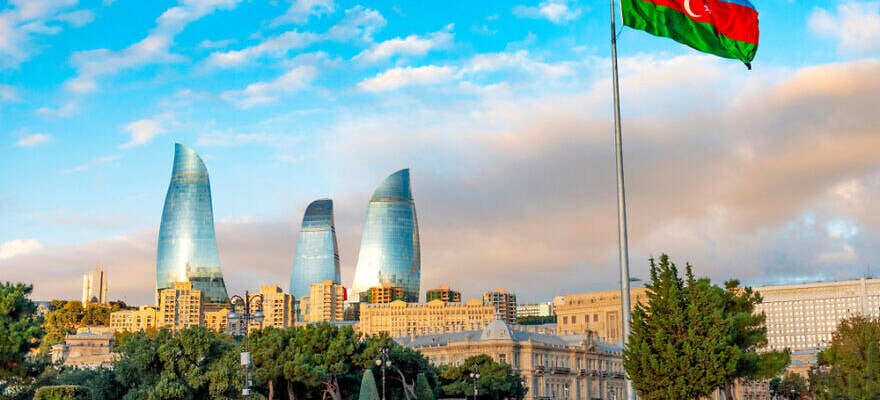The biennial convention of the Conference of European Rabbis is scheduled to take place in Baku with about 500 rabbis expected to attend.
By Etgar Lefkovits, TPS
Hundreds of European rabbis from across the continent will be gathering in Azerbaijan this fall to discuss Jewish affairs in the first such convention in a Muslim nation.
The planned event comes amid burgeoning relations between Israel and Azerbaijan that developed from a centuries-long affinity between the two nations into an unprecedented strategic partnership.
The biennial convention of the Conference of European Rabbis is scheduled to take place in Baku on Nov. 12-15 at the invitation of Azerbaijan President Ilham Aliyev, who will serve as the honorary host, with about 500 rabbis expected to attend the event.
The primary Orthodox rabbinical alliance in Europe, the organization unites more than 700 religious leaders from communities across Europe. Founded in 1956, it works to defend the rights of Jews in Europe, with freedom of religion and matters related to the Jewish communities expected to be front and center at the conference.
“Azerbaijan is a place with a special memory for the Jewish people, and is home to one of the most unique Jewish communities in the world,” said Rabbi Pinchas Goldschmidt, president of the Conference of European Rabbis who met with Aliyev earlier this year.
“The developing ties between Israel and Azerbaijan are of great importance in today’s Middle East,” he added.
The Zurich-born Goldschmidt, who served as chief rabbi of Moscow for nearly three decades, left Russia last year following the invasion of Ukraine and then resigned from his position. His subsequent public criticism of the war led him to be branded by Russia as a “foreign agent.”
‘Just the Right Place’
The selection of secular Shi’ite Muslim Azerbaijan as the venue for the conference is also highly symbolic and comes full circle since it is believed that indigenous Jews arrived on the territory of Azerbaijan following the Babylonian destruction of the First Temple in Jerusalem in 586 BCE.
“The fact that this European rabbinical conference will be held here in Baku is recognition of people feeling safe here; it is just the right place,” said Elchin Amirbayov, representative to the president on special assignments.
“It is a good precedent,” he added.
Indeed, at a time of heightened antisemitism across the globe, Azerbaijan is considered free of such animus with the country’s 25,000 to 30,000 Jews living in harmony with their predominantly Muslim neighbors.
“It is truly a privilege to work with Jews from so many diverse backgrounds who live together with a special nation and leadership that honors us and greatly respects us,” said Shneor Segal, who serves as Chief Rabbi of the Jewish Community of European Jews in Baku.
Segal is one of seven Chabad emissaries to Azerbaijan, including five in the capital Baku. The city also has three synagogues, two Jewish schools, a newly opened kosher restaurant and hotels that cater to strictly kosher groups.
Historically, Azerbaijan is home to three distinct Jewish communities: European Jews, who settled in the area during the late 19th to early 20th centuries, and during World War II; Jews from the former Soviet Republic of Georgia, who settled mainly in Baku during the early part of the 20th century; and Mountain Jews, the most sizable and ancient group.
The conference will include a visit to the historic ancient Jewish town of Quba in Azerbaijan, which was home to Mountain Jews for centuries.
“People are always asking where you can see the Mountain Jews when, in fact, they are often sitting right next to you at a Shabbat service,” he said.
